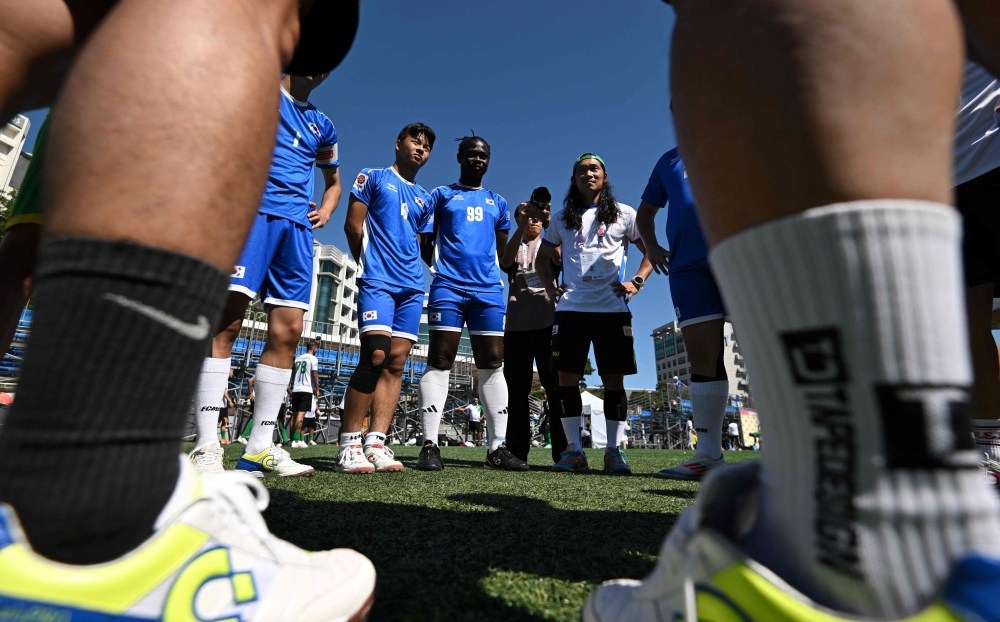Fossi Wandji, a refugee from Cameroon, found himself stranded in the Incheon airport terminal in South Korea after his asylum request was rejected. However, the South Korean nation is now relying on him to enhance their chances at the Homeless World Cup tournament. The tournament showcases national teams consisting of young, homeless individuals, refugees, and those who have battled substance abuse. This event, supported by FIFA, is being hosted by Asia for the first time this year since its inception in 2003. The tournament aims to bring positive change to the lives of its participants through football.
Wandji’s story is similar to the plot of the movie “The Terminal,” where the protagonist is stuck in an airport due to circumstances beyond his control. Wandji fled Cameroon due to the civil war and sought refuge in South Korea. Despite facing rejection upon arrival, he remained in the airport terminal while seeking a reversal of the decision. He turned the Terminal 2 transit area into his temporary residence, sharing space with other asylum seekers, including those who had fled Russia to avoid military conscription.
South Korea has a low acceptance rate for asylum seekers, having approved only 1.29% of the more than 116,400 asylum applications received over the past 30 years. Despite initial rejection, a South Korean court overturned Wandji’s claim, allowing him to leave the airport with a stay permit while his asylum application is reconsidered. He later joined the South Korean Homeless World Cup team, where his defensive prowess has been crucial in their matches. He scored one goal in the team’s first five matches, contributing to their performance in the tournament.
The Homeless World Cup tournament this year features 52 teams from 38 countries, with FIFA partnering with the Homeless World Cup Foundation to organize the event. FIFA is providing medals, trophies, and broadcasting the event on their FIFA+ streaming platform for free. Wandji expressed his gratitude towards South Korea and his hope of winning asylum in the country. The tournament offers participants like Wandji an opportunity to showcase their talent, bond with teammates, and strive for a better future through football.
Wandji’s journey from seeking asylum in South Korea to representing the country in the Homeless World Cup tournament highlights the resilience and determination of refugees. His story exemplifies the power of sports in transforming lives and providing hope in challenging circumstances. The tournament serves as a platform for marginalized individuals to come together, showcase their skills, and work towards a brighter future. Wandji’s participation in the tournament not only benefits the South Korean team but also raises awareness about the struggles faced by refugees and homeless individuals worldwide.











